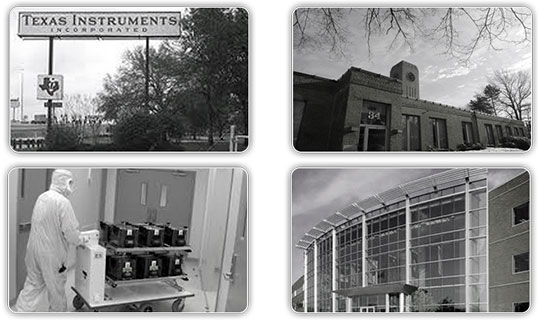At peak operation, the Texas Instrument’s Plant, formerly known as Metals & Controls Corp. or Attleboro Plant, employed nearly 6,000 workers in 23 buildings. From 1952 – 1981 the site focused on producing enriched uranium foils for the US Military. The plant was critical to the local economy.
By 2001 it became clear, work at the Massachusetts Plant and others like it across the country, exposed workers to unsafe levels of radiation and toxic chemicals. Rates of cancer and chronic beryllium disease, among other ailments, were exceedingly high amongst the workers at nuclear weapons facilities.
Congress decided to set up a relief program to compensate nuclear workers (or their survivors) for injuries and provide access to medical resources. The program is called the Energy Employees Occupational Illness Compensation Program (EEOICP). Depending on the situation, claimants can be compensated up to $400,000 and have access to a variety of medical resources.
While congress was well intentioned with the compensation program, the bureaucracy surrounding its administration has left many former workers stranded. Claims are frequently denied or never submitted due to the high burden of proof placed on claimants.
 Massachusetts House Representative Joseph Kennedy III has taken it upon himself to help represent former workers of the Texas Instruments Plant. Kennedy writes, “As you know, my district is home to a former Texas Instruments facility known as Metals and Controls, Inc. Since the facility’s nuclear work in the 1950s and 60s, former employees and their families have filed claims through EEOICP. EEOICP benefits can be vital lifelines to individuals wrestling with the painful human cost of the United States’ mid-century nuclear development. I believe our country has a firm responsibility to care for those we put in harm’s way.”
Massachusetts House Representative Joseph Kennedy III has taken it upon himself to help represent former workers of the Texas Instruments Plant. Kennedy writes, “As you know, my district is home to a former Texas Instruments facility known as Metals and Controls, Inc. Since the facility’s nuclear work in the 1950s and 60s, former employees and their families have filed claims through EEOICP. EEOICP benefits can be vital lifelines to individuals wrestling with the painful human cost of the United States’ mid-century nuclear development. I believe our country has a firm responsibility to care for those we put in harm’s way.”
Kennedy and many others have realized the struggle workers endure with proving their exposures in order to be approved for the program. Records are decades old, incomplete, or no longer available. In some cases no records were kept at all. To deal with these issues, in 2010 the Massachusetts Texas Instruments Plant was given Special Exposure Cohort(SEC) status under EEOICP. SEC status removes the requirement for sick workers to prove their exposures.
In order to be approved under Special Exposure Cohort status a former Texas Instruments worker must have worked at least 250 work days on the site between 1952 and 1967. They also must have contracted one of 22 “specified cancers.” If workers do not meet these requirements they can still apply for benefits through the original process.
While over fifty million dollars of compensation has been awarded to former Texas Instrument workers, the program has still left a lot of struggling workers without an answer. Representative Kennedy states, “Our office continues to receive reports of delays, confusion and roadblocks throughout the claims process. While we are pleased with the progress made over the past year in connecting former TI employees with these critical health benefits, it’s clear there is still work to do.”
Kennedy believes increased communication between government agencies and a push to put the claims process online will help expedite compensation and medical benefits for former workers. He also believes creating an emergency channel where claimants needing immediate help can have their claims expedited will help those in the most need.





